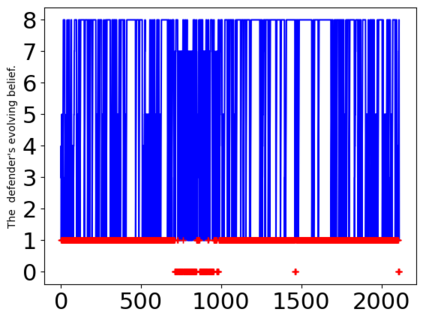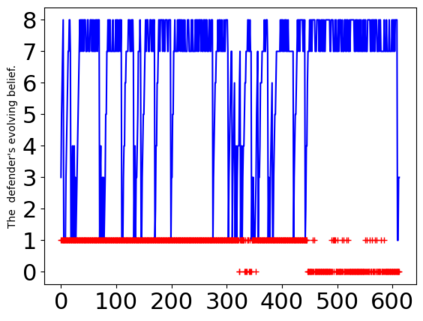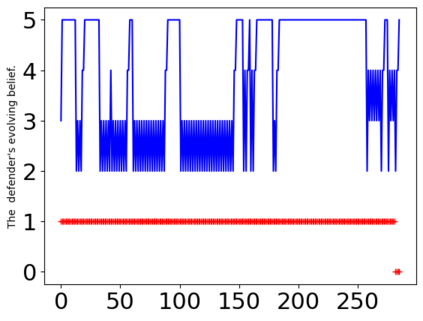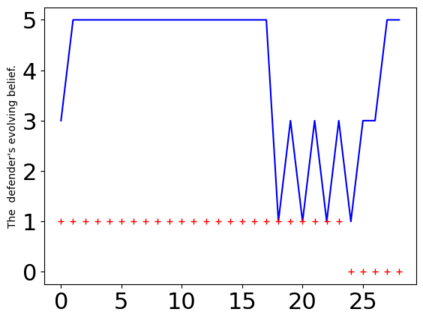Intention deception involves computing a strategy which deceives the opponent into a wrong belief about the agent's intention or objective. This paper studies a class of probabilistic planning problems with intention deception and investigates how a defender's limited sensing modality can be exploited by an attacker to achieve its attack objective almost surely (with probability one) while hiding its intention. In particular, we model the attack planning in a stochastic system modeled as a Markov decision process (MDP). The attacker is to reach some target states while avoiding unsafe states in the system and knows that his behavior is monitored by a defender with partial observations. Given partial state observations for the defender, we develop qualitative intention deception planning algorithms that construct attack strategies to play against an action-visible defender and an action-invisible defender, respectively. The synthesized attack strategy not only ensures the attack objective is satisfied almost surely but also deceives the defender into believing that the observed behavior is generated by a normal/legitimate user and thus failing to detect the presence of an attack. We show the proposed algorithms are correct and complete and illustrate the deceptive planning methods with examples.
翻译:本文研究了一组概率性规划问题,用意图欺骗,并调查攻击者如何几乎肯定地(概率之一)利用辩护人的有限感知方式实现其攻击目标,同时隐藏其意图。特别是,我们用一个以Markov决定程序(MDP)为模型的随机系统来模拟攻击计划。攻击者将到达某些目标国家,同时避免系统中的不安全状态,并知道他的行为是由一名维护者通过部分观察来监测的。考虑到部分国家观察,我们制定了定性意图欺骗计划算法,以构建攻击战略来对付一个可观察的捍卫者和不可观察的捍卫者。综合攻击战略不仅确保攻击目标得到实现,而且几乎肯定地还欺骗了捍卫者相信所观察到的行为是由正常/合法使用者产生的,从而无法发现攻击的存在。我们展示了拟议的算法正确和完整,并以实例说明欺骗性规划方法。









